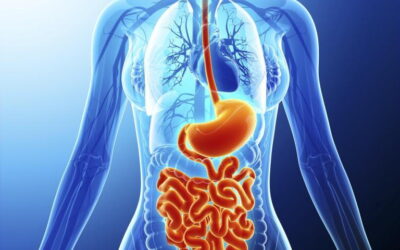Who Is a Gastroenterologist?
A gastroenterologist is a medical specialist focusing on the digestive system. They diagnose and treat conditions affecting the stomach, intestines, liver, pancreas, and gallbladder. These experts undergo extensive training to manage complex digestive disorders.
When Should You See a Gastroenterologist?
Many digestive issues require specialized care. If you experience persistent symptoms, visiting a gastroenterologist can help identify the root cause.
Common Reasons to Visit a Gastroenterologist
- Frequent Heartburn – Chronic acid reflux may indicate GERD, requiring medical intervention.
- Unexplained Weight Loss – Sudden weight loss without dietary changes can be a sign of digestive disorders.
- Bloody Stools – Blood in the stool may indicate ulcers, infections, or colon cancer.
- Chronic Abdominal Pain – Ongoing discomfort could be linked to conditions like IBS or Crohn’s disease.
- Difficulty Swallowing – Trouble swallowing food may signal esophageal disorders.
- Persistent Diarrhea or Constipation – Long-term irregular bowel movements require medical attention.
Conditions Gastroenterologists Treat
These specialists handle a wide range of digestive issues. Early diagnosis and treatment can prevent complications.
Gastroesophageal Reflux Disease (GERD)
GERD occurs when stomach acid frequently flows back into the esophagus. Symptoms include heartburn, chest pain, and regurgitation. Treatment options range from lifestyle changes to medications and surgery.
Irritable Bowel Syndrome (IBS)
IBS affects bowel movements, causing diarrhea, constipation, and bloating. A gastroenterologist can recommend dietary adjustments and medications for symptom management.
Inflammatory Bowel Disease (IBD)
IBD includes Crohn’s disease and ulcerative colitis, both of which cause chronic inflammation in the intestines. Symptoms include severe diarrhea, abdominal pain, and fatigue. Treatment may involve medication, dietary changes, or surgery.
Liver Diseases
Gastroenterologists diagnose and manage liver conditions like hepatitis, fatty liver disease, and cirrhosis. These conditions can lead to severe complications if left untreated.
Gallbladder Diseases
Gallstones and gallbladder inflammation can cause pain and digestive issues. Gastroenterologists may recommend dietary changes, medications, or surgery to remove the gallbladder if necessary.
Pancreatic Disorders
Conditions like pancreatitis and pancreatic cancer require specialized care. Symptoms include severe abdominal pain, jaundice, and digestive difficulties.
Colorectal Cancer Screening
Routine colonoscopies help detect colorectal cancer early. Gastroenterologists perform these screenings to identify and remove precancerous polyps.
How Gastroenterologists Diagnose Digestive Issues
These specialists use various diagnostic tools to assess digestive health.
Common Diagnostic Procedures
- Endoscopy – A thin tube with a camera examines the esophagus, stomach, and intestines.
- Colonoscopy – This procedure detects polyps, tumors, and abnormalities in the colon.
- Ultrasound & Imaging Tests – CT scans, MRIs, and ultrasounds provide detailed organ images.
- Blood & Stool Tests – Lab tests identify infections, inflammation, and digestive disorders.
Conclusion
Gastroenterologists play a crucial role in maintaining digestive health. If you experience persistent digestive issues, seeking professional care can improve your quality of life. Early diagnosis and treatment can prevent severe complications. Don’t ignore digestive symptoms—consult a gastroenterologist when necessary.


